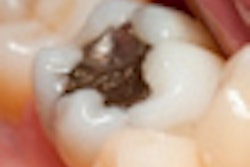Substituting alternative materials for mercury-based dental fillings has less negative impact on human health and the environment, according to a new report by the Health Care Research Collaborative.
The study compared the health and environmental impact of mercury dental amalgam with those of the alternatives currently available in the U.S.
The report found that the known impact of mercury on human health and the global environment outweigh the known impact of resin composites and glass ionomer fillings. The report also found that health systems in several countries have successfully substituted mercury with these alternatives with little or no negative impact on oral health.
Based on this evidence, the report recommends a phaseout of virtually all usage of dental mercury, with exceptions due to clinical necessity. It also urges proper exposure control measures of alternative materials due to the demonstrated genotoxicity and allergenicity of some of the compounds.
The researchers noted that they found no evidence of a negative effect on patients' health from either mercury amalgam or the alternatives used in restorations, but the alternatives were less hazardous to the general environment and the public's health.
Such a phaseout, therefore, must take into account the following:
- The practical availability of alternative materials in a region or country
- The equipment needed to utilize nonmercury alternatives
- The training of dentists to utilize these alternatives
- The costs to the patient and society



















